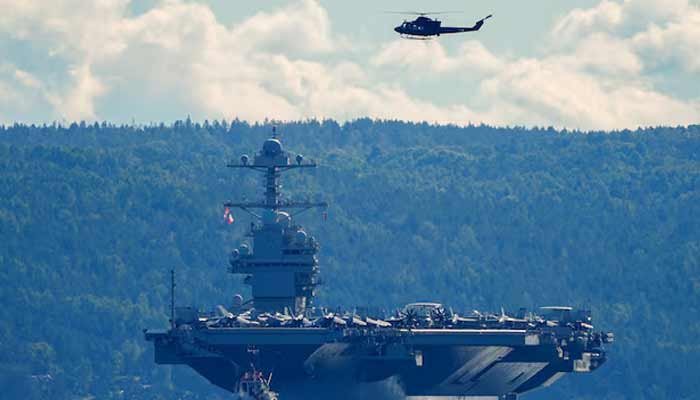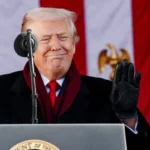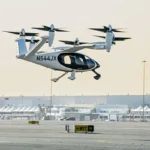The arrival of the USS Gerald R. Ford, the US Navy’s largest aircraft carrier, in Latin America has intensified tensions with Venezuela. The deployment, part of a broader anti-drug operation, also includes F-35 stealth jets stationed in Puerto Rico and six additional US Navy ships patrolling the Caribbean.
The Pentagon emphasized that this military presence is aimed at strengthening the United States’ ability to detect, monitor, and disrupt drug trafficking operations threatening national security in the Western Hemisphere.
Under President Donald Trump, the US has labeled Latin American drug cartels as terrorist organizations, carrying out strikes on at least 20 vessels in international waters since September, resulting in 76 deaths according to official figures. These actions have drawn criticism from human rights experts who describe them as potential extrajudicial killings.
Venezuela, led by President Nicolas Maduro, condemned the US naval operations as a threat to its sovereignty, announcing a nationwide military deployment involving air, land, river, and missile forces, alongside civilian militias, to counter what it calls “imperial threats.” While such announcements are frequent in Venezuela, analysts suggest the country is ill-prepared to confront US military power directly.
Russia, a key ally of Caracas, denounced the US strikes as illegal and “unacceptable,” while the UK refrained from commenting on reports of suspending intelligence sharing over concerns about complicity in US operations.
The situation highlights rising tensions in the region, with Venezuela, the US, and international actors closely watching developments that could escalate further.
#Venezuela #USNavy #USSgeraldRFord #LatinAmericaTensions #DrugWar #USMilitary #NicolasMaduro #InternationalConflict #Geopolitics #MilitaryDeployment







